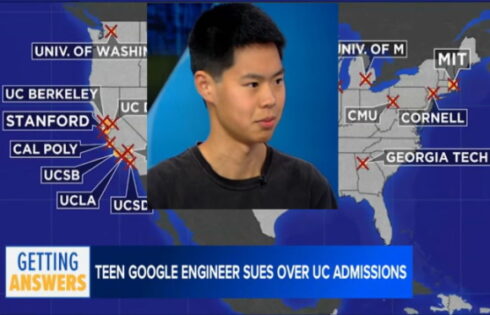
Universities should encourage safe social interactions instead, argue two professors
A pair of professors have a warning for university officials who crack down on students for coronavirus guideline violations: Stop blaming and shaming them.
Instead, schools should implement strategies to minimize risk instead of focusing on punishment.
Julia Marcus, an epidemiologist and a professor at Harvard, and Jessica Gold, a psychiatrist and professor at Washington University in St. Louis, recently wrote an article in The Atlantic that warned university officials to be careful in how they approach coronavirus guidelines.
They argue that schools should be aware of the mental health benefits of social interactions for students and the consequences of socially isolating students.
The article criticized recent approaches by schools like Tulane University, which threatened to suspend or expel students for hosting more than 15 people, saying that a disciplinary approach does not work.
In fact, shaming students could backfire, especially if they feel like they will get in trouble for coming forward with positive coronavirus cases, the professors argue.
From the article:
“[H]ere’s what won’t work to stop the parties: berating the students who choose to host or attend them. Shaming people for their risky behaviors is not an effective public-health strategy and can be counterproductive.
The more that students are castigated for having house parties or going to bars, the more reluctant they will be to disclose potentially stigmatizing information to contact tracers in the event of an outbreak.
Partygoers have already been hesitant to cooperate with contact tracers off campus—and this reluctance will only be amplified for students who fear being disciplined for breaking the rules.
Students who put the campus community at grave risk should face appropriate consequences, but students also need to be reassured that they won’t be punished for disclosing symptoms, testing positive, or sharing contacts from an illicit gathering.”
Campus officials should instead focus on addressing the concern of students over loneliness and socializing, the pair argues. They note that young adults are at a low risk for transmitting coronavirus but are at a greater risk of mental health problems that come from social isolation.
Gold and Marcus encouraged universities to “acknowledge that some students are going to socialize and will need tools to minimize harms.” They note that harm-reduction models have worked for universities addressing drinking on campus and the same models could work for reducing coronavirus infections.
“Students need to hear not just what they can’t do, but also what they can do. Although house parties are a no-go, small outdoor gatherings—especially within social bubbles—are a reasonable choice,” wrote Gold and Marcus.
They suggest that universities create socially-distant programming such as movies and concerts on campus in order to provide safe and social options for students. Universities such as Stanford use a similar approach to reducing drinking on campus, they noted.
They concluded: “Shaming and threatening students will only obstruct public-health efforts.” Instead, they argue, “If universities want to reopen and stay open, administrators need to adopt a compassionate and realistic approach that supports students in staying socially connected and mentally healthy—not just free of coronavirus infection.”
IMAGE: Fotos593/Shutterstock
Like The College Fix on Facebook / Follow us on Twitter




Add to the Discussion